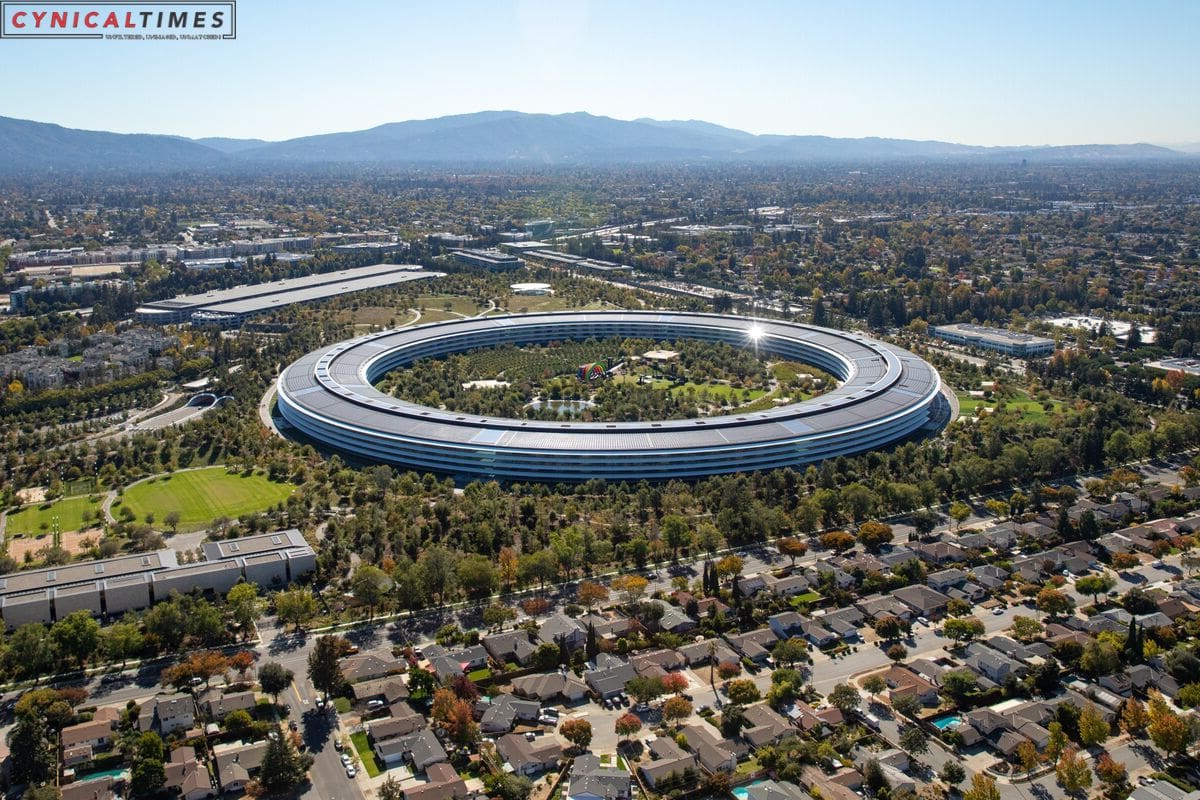Cupertino Battle with Apple: In a showdown with tech titan Apple, Cupertino’s financial future hangs in the balance. The California Department of Tax and Fee Administration (CDTFA) is targeting the company’s tax allocation methods, and the repercussions are dire.
The CDTFA conducted a rigorous audit, revealing improper allocation of tax dollars. Matt Morley, Cupertino’s Assistant City Manager, expressed the city’s dilemma, “They’ve asked for a correction in the allocation process.”
Under a longstanding agreement with Apple dating back to 1998, the company designates all online sales to California residents as originating in Cupertino. This directs the local 1% share of the state’s 7.25% sales tax to the city. Cupertino, home to Apple’s global headquarters and a company valued at $2.78 trillion, has greatly benefitted from this arrangement, despite returning a third of the revenue to Apple.
Now, state tax authorities insist that Apple reimburse $20 million to be reallocated, leaving Cupertino with a $56.5 million bill for the period from April 2021 through June 2023.


Also Read: Unveiling the Secrets of Sgr A : The Milky Way’s Enigmatic Black Hole
In response, Cupertino’s City Council allocated this sum from the city’s reserves, depleting $44 million from an unassigned general fund reserve to brace for potential sales tax losses. If the decision stands, the city anticipates annual reductions of $30 million in sales tax revenue, a staggering 73% drop from previous forecasts.
To weather this financial storm, the city must make tough choices, potentially slashing non-essential services and cutting staff. Cupertino’s appeal of the CDTFA’s decision may take up to a decade to resolve.
Cupertino’s Mayor, Hung Wei, remains optimistic, stating that collaboration between leaders, employees, and residents is the key to overcoming this challenge. She assures that public safety and parks and recreation will remain priorities.
While the audit’s timing remains mysterious, Wei believes the surge in online sales during the pandemic drew the CDTFA’s attention, prompting a reevaluation of online sales tax allocation rules.
The battle continues as Cupertino asserts that the CDTFA has overstepped its authority in redefining sales tax allocation rules, prompting hope for legislative intervention to protect cities from potential clawbacks and outdated regulations on internet sales tax allocation
Our Reader’s Queries
What is Apple Cupertino charge on credit card?
If you notice a charge on your card that doesn’t match Apple’s purchase or billing list, and the charge is labeled as “Dave Cupertino” instead of just “Cupertino” (where Apple’s headquarters are located), it could be a fraudulent charge made by someone pretending to be Apple. Don’t fall for this scam and make sure to report any suspicious charges to your bank or credit card company immediately.
What is the Cupertino Apple tax deal?
Cupertino is the recipient of the sales tax, but in return, they give a portion of the collected tax money to Apple. The percentage was renegotiated in 2013, and now Apple receives 35% of the sales tax revenue from their online sales in California. This mutually beneficial agreement has allowed both entities to thrive.
How much tax does Apple pay to Cupertino?
According to the San Jose Spotlight, Apple’s 7.25% sales tax includes a 1% local portion that is allocated to the city. As part of the agreement, Cupertino returns about one third of this revenue to Apple.
Why did Apple choose Cupertino?
Apple’s inception took place in Cupertino, California, where its co-founders Steve Jobs, Steve Wozniak, and Ronald Wayne resided. The location was strategically chosen due to its close proximity to Silicon Valley, a hub of technology companies and skilled professionals.

